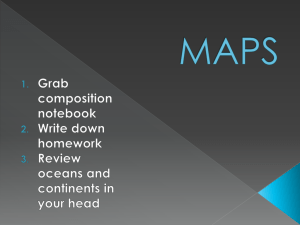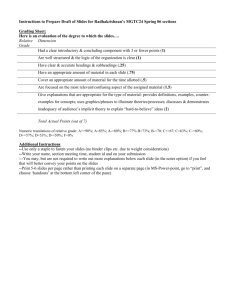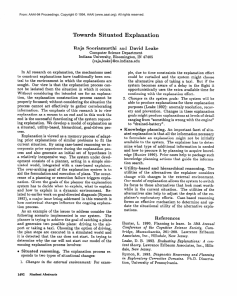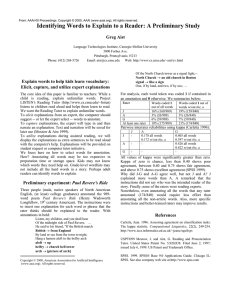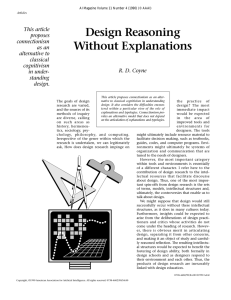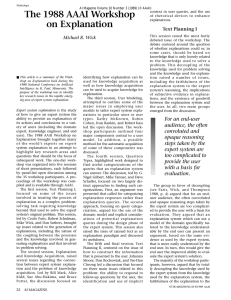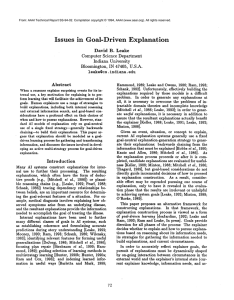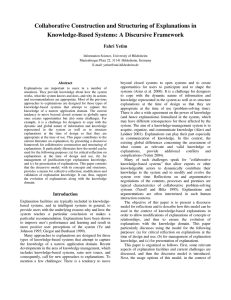Preface
advertisement
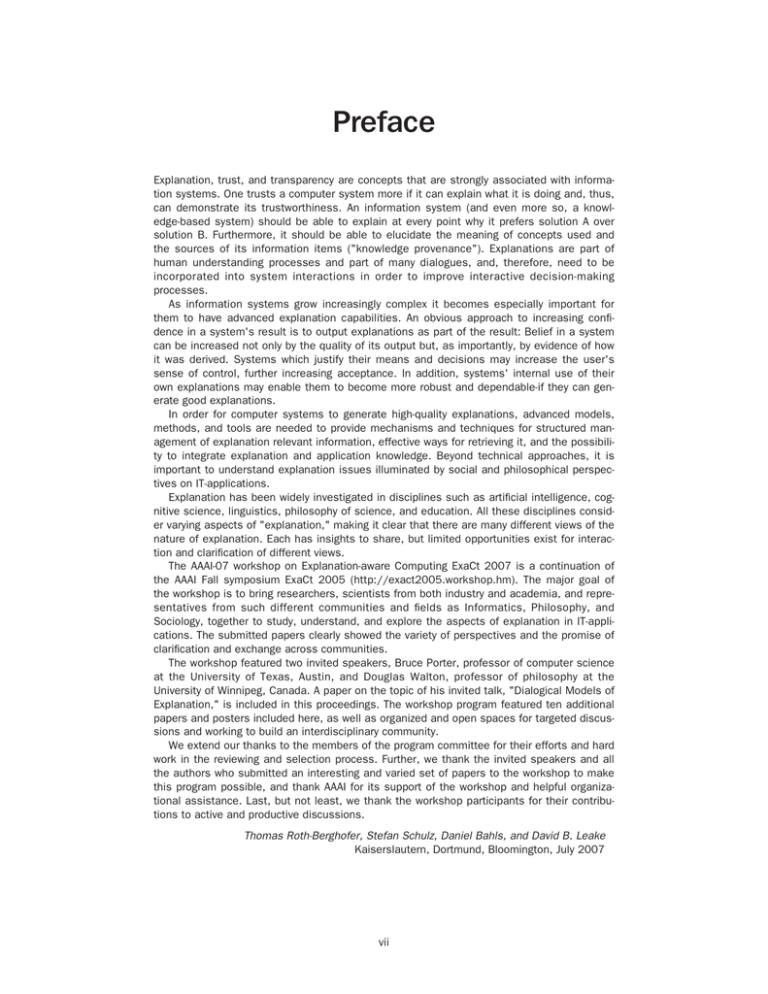
Preface Explanation, trust, and transparency are concepts that are strongly associated with information systems. One trusts a computer system more if it can explain what it is doing and, thus, can demonstrate its trustworthiness. An information system (and even more so, a knowledge-based system) should be able to explain at every point why it prefers solution A over solution B. Furthermore, it should be able to elucidate the meaning of concepts used and the sources of its information items ("knowledge provenance"). Explanations are part of human understanding processes and part of many dialogues, and, therefore, need to be incorporated into system interactions in order to improve interactive decision-making processes. As information systems grow increasingly complex it becomes especially important for them to have advanced explanation capabilities. An obvious approach to increasing confidence in a system's result is to output explanations as part of the result: Belief in a system can be increased not only by the quality of its output but, as importantly, by evidence of how it was derived. Systems which justify their means and decisions may increase the user's sense of control, further increasing acceptance. In addition, systems' internal use of their own explanations may enable them to become more robust and dependable-if they can generate good explanations. In order for computer systems to generate high-quality explanations, advanced models, methods, and tools are needed to provide mechanisms and techniques for structured management of explanation relevant information, effective ways for retrieving it, and the possibility to integrate explanation and application knowledge. Beyond technical approaches, it is important to understand explanation issues illuminated by social and philosophical perspectives on IT-applications. Explanation has been widely investigated in disciplines such as artificial intelligence, cognitive science, linguistics, philosophy of science, and education. All these disciplines consider varying aspects of "explanation," making it clear that there are many different views of the nature of explanation. Each has insights to share, but limited opportunities exist for interaction and clarification of different views. The AAAI-07 workshop on Explanation-aware Computing ExaCt 2007 is a continuation of the AAAI Fall symposium ExaCt 2005 (http://exact2005.workshop.hm). The major goal of the workshop is to bring researchers, scientists from both industry and academia, and representatives from such different communities and fields as Informatics, Philosophy, and Sociology, together to study, understand, and explore the aspects of explanation in IT-applications. The submitted papers clearly showed the variety of perspectives and the promise of clarification and exchange across communities. The workshop featured two invited speakers, Bruce Porter, professor of computer science at the University of Texas, Austin, and Douglas Walton, professor of philosophy at the University of Winnipeg, Canada. A paper on the topic of his invited talk, "Dialogical Models of Explanation," is included in this proceedings. The workshop program featured ten additional papers and posters included here, as well as organized and open spaces for targeted discussions and working to build an interdisciplinary community. We extend our thanks to the members of the program committee for their efforts and hard work in the reviewing and selection process. Further, we thank the invited speakers and all the authors who submitted an interesting and varied set of papers to the workshop to make this program possible, and thank AAAI for its support of the workshop and helpful organizational assistance. Last, but not least, we thank the workshop participants for their contributions to active and productive discussions. Thomas Roth-Berghofer, Stefan Schulz, Daniel Bahls, and David B. Leake Kaiserslautern, Dortmund, Bloomington, July 2007 vii

